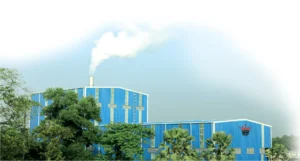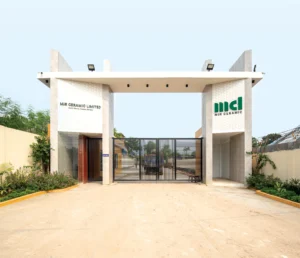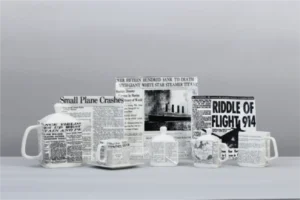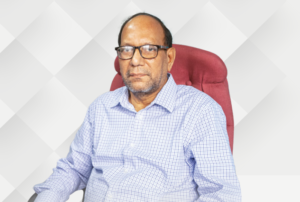ceramic patron

Journey of the CEO of Fu-Wang Ceramic Teamwork Makes a Company Successful
A world where the demand for ceramic products is steadily on the rise, it takes innovation, commitment, and most importantly, a dedicated team to navigate the challenges and lead a company to success. Rafiquzzaman Bhuiyan, the Chief Executive Officer (CEO) of Fu-Wang Ceramic Industry Limited (FWCIL), has not only recognised this but also executed a vision that has propelled the company to new heights.
Read More
Shahanawaz Maestro of Ceramics, Carving a Lasting Legacy in Bangladesh’s Ceramic Tapestry
In the captivating tapestry of Bangladesh’s ceramic industry, one name resonates as a beacon of creativity, dedication, and unwavering passion. That is Shahanawaz. With over three decades of commitment, Shahanawaz’s journey through the twists and turns of the ceramic sector has become a legendary one.
Read More
One Journey, Three Companies CEO in 18 Years
A nonhereditary succession of a man who dedicated his career to ceramics, an insider’s view on this patron’s journey, and some heart-rending moments taken as life lessons. From being a brand development executive at Shinepukur Ceramics to becoming CEO of Artisan Ceramics Ltd., M. Mamunur Rashid has walked down almost every road and tackled countless challenges, making him the ceramic leader he is today. To treasure these experiences in our gallery, Ceramic Bangladesh recently had the opportunity to sit with him. “Culturally we’ve all had ceramics and earthenware infused into our lives from childhood,” said Mr. Rashid, whose story is similar- his father Mr. Mohammad Ali at Habib Bank in Pakistan when Mr. Rashid was introduced to beautiful Japanese tableware. “I still remember my father’s collections. The ceramic body was crackled and the flowers on them looked like mosaics. We played with those, and even broke a few,” he said. His family returned to Bangladesh a week before the liberation war started and his father joined Janata Bank. Upon completion of M.Sc from Dhaka University, Mr. Rashid joined Shinepukur Ceramics Ltd, a BEXIMCO Group concern, and started his ceramic journey. Looking back Mr. Rashid toiled seven and a half years with Shinepukur, and the same amount of time with FARR Ceramics. He is now the CEO at Artisan for five years. Here is his ceramic journey in brief: While a novice Mr. Rashid started his career at Marketing section of Shinepukur Ceramics in 1999. Under the mentorship of Mr. Mahmudur Rahman, he contributed to establishing the International Ceramics Tableware Brand “DOEL” in the Indian market. He also worked closely with company Vice Chairman Mr. Salman F. Rahman. “I was a senior executive, but I was selected to work with him directly,” he said. The first job taught Mr. Rashid a lot about marketing and brand development. 7years with Tableware Mr. Rashid joined another ceramic tableware company, FARR Ceramics, during its inception in 2007. It then was introducing the newest technology. However, Mr. Rashid realized that his colleagues had the impression that FARR’s technology would fail. People apprehended that Open Firing was risky! The firing system was much faster, and about 30% fuel efficient – a factor which reduces cost of production. FARR’s technology still succeeded, and the Germans had to come in with similar technology and result-driven evidence to convince other companies to adopt it. Mr. Rashid recalled, “MD of FARR (late) Mr. Iftekhar Uddin Farhad always knew how to pick the right person consider the man my idol because of how well he understood people.” An export miracle Mr. Rashid was put under a lot of pressure on the second or third day of joining FARR Ceramics. Mr. Farhad asked him for a new export client in a week. He took up the challenge. He knew he had to reach out to the most approachable international connection he could find, a company that trusted him, and henceforth, would be easier to sell to. He invited some clients from Delhi on a subsidized trip to Bangladesh. They were convinced seeing the products quality and the technology, and ordered a size of two containers. All this happened within 28 days of Mr. Rashid’s joining. “Mr. Farhad told me, ‘You saved me! I invested a lot of capital in machineries,” Mr. Rashid said. Sky is the limit An adventurous soul, Mr. Rashid was looking for a more suitable place to unleash his full potential. His colleague from BEXIMCO, the CEO of Artisan Ceramics a concern of Finlays by this time, brought him in as a general manager in 2016. Realizing that the product designs needed to change for the international market, he worked with the R&D team, innovated, and redesigned Artisans products in keeping with global trends. The company came in second for the National Export Trophy in FY2018, winning the trophy 4 times in the following years consecutively. This was possible due to unconditional support and highest level of cooperation extended by the honorable Board of Directors and iconic business personals of Finlays. Artisan ceramics has seen 3.0 times expansion. It has a capacity of producing seven tonnes of 100% pure porcelain tableware, and is selling to clients in most of the continent like: Europe, Asia, USA, and some North & South American countries. Mr. Rashid believes secrets to Artisan’s success are the superiors who never intervened, quality, and customer relationship. “I cherish relationships and always put effort into them and it has paid off so far,” Mr. Rashid added. Deep diving into Mr. Rashid’s business philosophy: 1. Mr. Rashid sells trust and assurance, both of which he highly values. 2. To retain customers and get referred, there should be after sales service. 3. A company needs to adapt with the ever-evolving trends. Senior employees in the industry sometimes have a hard time changing their old ways- they need training and habituation. 4. You have to unlearn certain ways and be open to relearning, that’s adaptation. 5. “We have exceptional manpower; we need to train them. Our international rivals cannot compare manpower with us because our manpower is available and competitive.” A quick-fire round: When asked ‘what is the biggest hurdle you’ve faced in your life?’, Mr. Rashid said changing his Job was the biggest hurdle. To gain his expertise in marketing and production, he spent a lot of time in the factories learning every bit of the trade. “A marketing guy should be able to look at a product and know it’s worth,” he said. “S/he should be able to derive what s/he want from simple instructive annotations.” With hobbies to collect stamps, reading and travelling, his passion now is ceramics and dream that this sector will grow boundlessly. “If the government supports more, they can do even better for the country,” he added. He likes vocalist James and is close to Azam Khan’s circle. Ayub Bacchu is also a personal favourite. He reads stories of CEOs and enjoys reading people’s experiences. End of quick fire Ceramics goes through
Read More
Poems and Pottery
For ceramics, you only get one chance to impress a viewer. The first impression, which is notoriously, the last, has to be a solid ¨I like the design¨ or else no matter how the shape or the glazing is, the same person will not give a second look at it. This is where designers come in. The designer envisions shapes and colours and creates enthralling pieces of ceramic ware. S/he not only comes up with the idea of the product, but also decides on the technical aspects that work behind every output.
Read More
Engr. Md. Faruque Ali How a Ceramic Icon made his Journey
Md. Faruque Ali’s journey is a long and memorable one but it never stops. It’s his journey in the ceramic industry that started in the 1980s – three decades after the inception of ceramics in Bangladesh. He is still a living icon in the sector. Graduating in engineering, Mr. Faruque Ali came to Dhaka in search of a job, and ended up at Power Development Board (PDB). He was posted at Kaptai, Rangamati. It was a lonely job then and two months of service there felt heavier than a decade. So he decided to switch jobs and joined the insulator and sanitary ware industry of Bangladesh Chemical Industries Corporation (BCIC) as an assistant engineer. He worked closely with the production team and his daily routine was to list the machines, know their names, learn how they worked, and how sanitary ware and insulators are produced. Thus came the commencement of Mr. Faruque Ali, now a delightful man with profound experience in the field, who has turned into a true patron of the ceramic industry. In an interview with Ceramic Bangladesh on a Friday morning, he, currently Executive Director at Shinepukur, shared the insights of his journey. Ceramic Bangladesh (CB): Why did you choose the ceramic sector for your career? Faruque Ali (FA): Initially I wasn’t planning to work here. But during my first posting at BCIC, I realised the whole process of production is very amusing. I found it interesting to see how we are producing elegant ceramic products using simply, clay. I instantly fell for the whole process and wanted to remain in the industry. CB: How has your journey been at Shinepukur? FA: I had been in the insulator department for four years. I knew a chemical engineer from the production team there who suggested for the two of us, to join Monno’s new tableware factory. We were in a dilemma when it came to changing from the public sector to the private sector and didn’t think it would be a good idea. So my companion went to join Monno at the time and I did it a bit later. I was there for nine years, took a break for two years and joined Shinepukur afterwards at the end of 1996. I’ve been at Shinepukur for 25 years now. CB: Regarding technological advancement, do you think the industry is moving forward? FA: There are different grades – earthen ware, stone ware, porcelain, and bone china. The modern face of earthen ware is stoneware in the table ware sector. Porcelain and bone china are even better versions. All these products need technological support to come to shape. And the necessary technology was mostly adapted in the European industry and came to us later. Automation came about mainly because we had lack of manpower. But the basics for the body glaze and formula are still the same. Technology has made it all seem much less complicated. For example, imitating the glaze and the formula consistently is remarkably done by the advanced technology we have now. And machine dependency has grown now more than ever. CB: What would you say is the future of the ceramic industry? FA: Ceramic products are a necessity and a fashionable item. The formula of the products is made to be reaction-free and pro-health/safety. When it comes to health, porcelain and bone china are the safest compared to kasha and melamine. Moreover, after 2001 lead and cadmium restrictions have been introduced. These products are the safest because they comply with all the health and safety policies. The future is moving towards similar products. ‘In 22 years of working in the ceramic industry, no two problems I faced were alike. We faced different challenges every day and had to come up with a unique solution for each individual problem we encountered.’ CB: What inspired you to keep going when things got hard? FA: There is a story to best answer this question. Around 2015/16, I worked with a man who said to me ‘In 22 years of working in the ceramic industry, no two problems I faced were alike. We faced different challenges every day and had to come up with a unique solution for each individual problem we encountered.’ My ceramic journey has been likewise. CB: Shinepukur won several export trophies; what is the reason behind Shinepukur’s continuous winning? What are your expectations for Shinepukur’s future? FA: It was the collective effort from everyone, starting from the workers to the top level. And in Shinepukur we are always planning to move forward with our ideas. The team works diligently, and we look for advancement every step of the way. Written by Chisty Rahim
Read More
